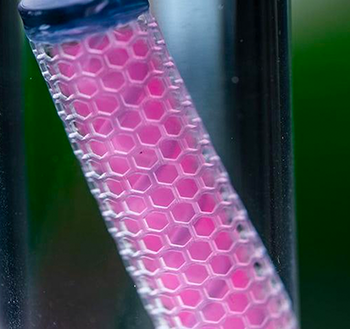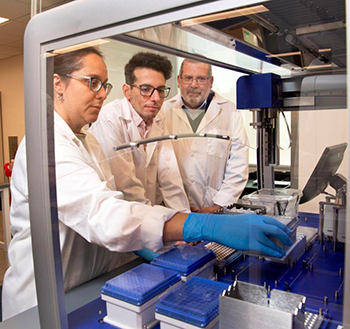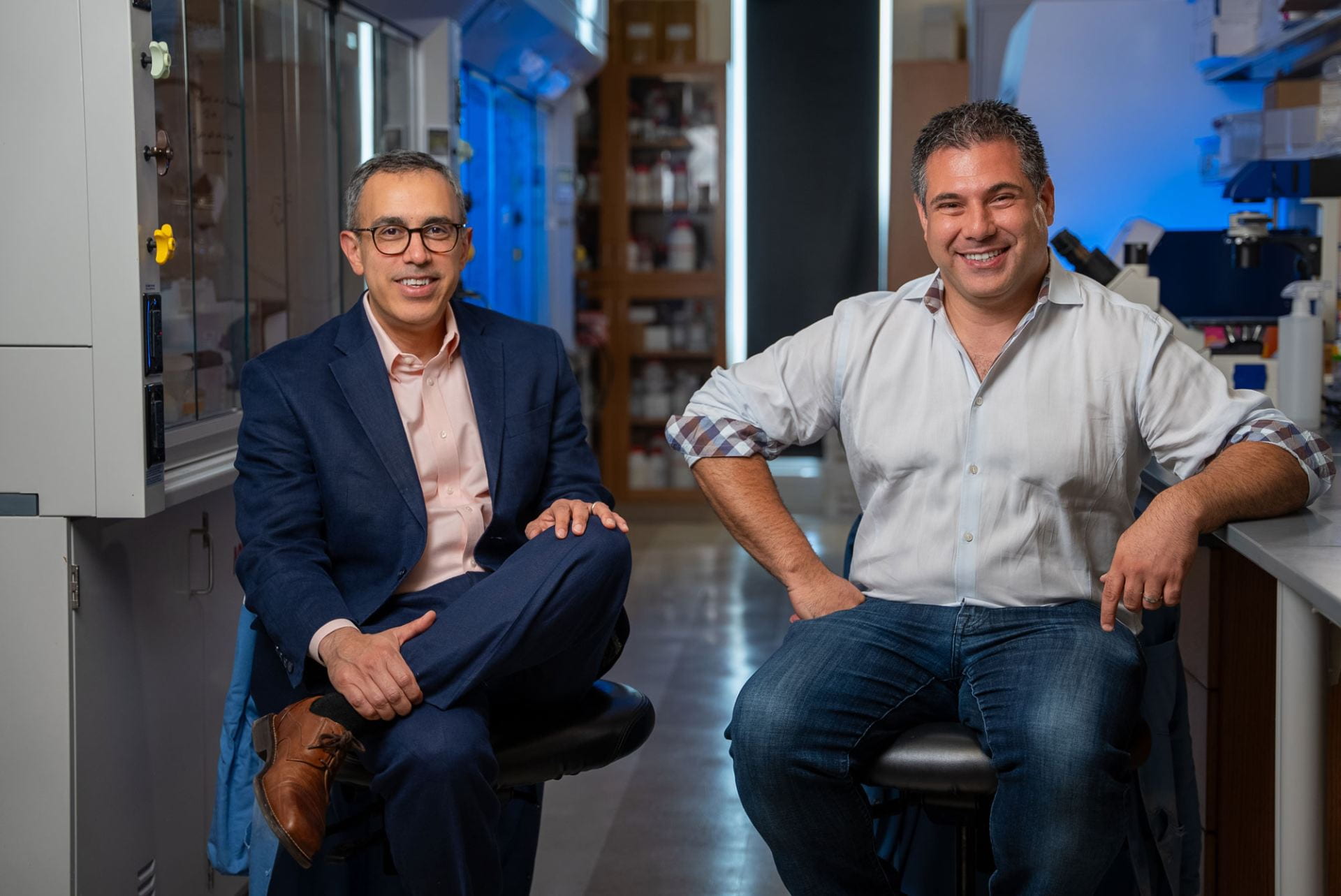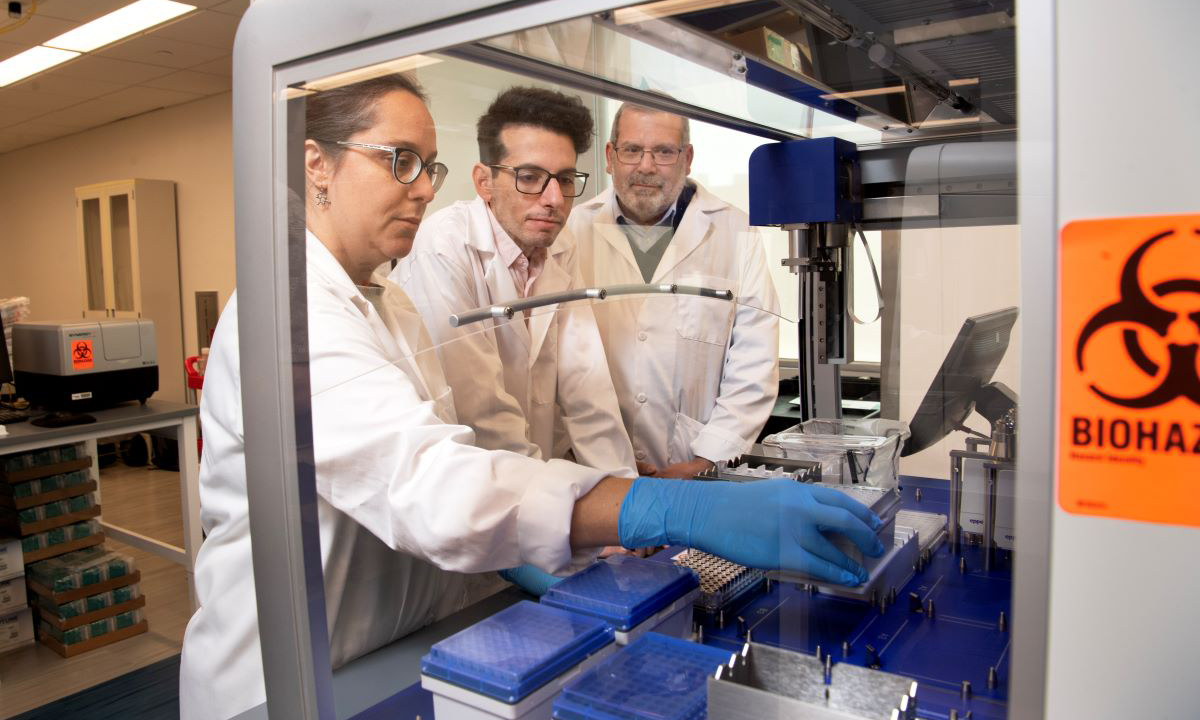Georgia Tech Receives Three Research Awards from ARPA-H
Oct 18, 2023 —
Funding is aimed at transformative biomedical and health breakthroughs to provide cancer solutions.
The Advanced Research Projects Agency for Health (ARPA-H) is a research funding agency that supports transformative biomedical and health breakthroughs — ranging from the molecular to the societal — to provide health solutions for all. ARPA-H awardees are developing entirely new ways to tackle the hardest challenges in health.
President Joe Biden’s Cancer Moonshot initiative aims to cut the cancer death rate by half in 25 years. Three projects connected to Georgia Tech, which have collectively received $119 million from ARPA-H, are doing just that.
With a grant worth up to $50 million, Georgia Tech will lead development of a new generation of cancer tests capable of detecting multiple types of tumors earlier than ever. Led by biomedical engineer Gabe Kwong, the project will map the unique cellular profiles of cancer cells and leverage that knowledge to build new bioengineered sensors to detect those profiles. The goal is to create a new kind of multi-cancer early detection test that would allow oncologists to start treating the tumors sooner, when they’re still small and most responsive.
“The ARPA-H program is really designed to accelerate true blue-sky visions of what the field needs to solve in order to push medicine and health forward. This is what researchers like to do — we dream about a different future; about the technologies we need to develop to get there. I’ve been cultivating this vision for the last 10 years. Now there’s a mechanism to implement it and go at light speed.” — Gabe Kwong
The project is the third with ties to Georgia Tech received in recent weeks. Professor Philip Santangelo, professor in the Wallace H. Coulter Department of Biomedical Engineering at Georgia Tech and Emory University, received the first tranche of funding from the agency — $24 million — for a project building a toolbox of mRNA drugs to activate or shut off specific genes to help the immune system fight cancer and other disorders.
Josiah Hester in the School of Interactive Computing is co-principal investigator of a $45 million Rice University-led effort to develop an implant to help the body better respond to cancer treatments. Celine Lin, associate professor in the School of Computer Science, is working with Hester to develop ultra-energy-efficient chips for signal processing and embedded control. Together, they will develop a robust platform that is energy-efficient enough to last for months.
“At ARPA-H, we recognize the urgency of the health challenges facing cancer patients and their families.” said ARPA-H Director Renee Wegrzyn, “and we are committed to funding truly transformative research that can improve health outcomes for everyone.”
$50M Cancer Moonshot Grant Will Build an Atlas for Earlier Cancer Detection

Biomedical engineer Gabe Kwong will map cancer cell biomarkers, then engineer new sensors to hunt for multiple kinds of cancer.
Computing Faculty Supporting Research That Could Cut Cancer Deaths in Half

A surgically implantable device the size of a pinky finger could be a huge step toward a cure for cancer.
BME Researchers Lead $24M Project Using mRNA to ‘Turn On’ Helpful Immune Responses

Philip Santangelo wants to build a toolbox of mRNA drugs to activate or shut off specific genes to help the immune system fight cancer and other disorders.

Omid Veiseh (right) and Dr. Amir Jazaeri in Veiseh’s Rice University laboratory in August 2023. Veiseh, an associate professor of bioengineering, is principal investigator on the “targeted hybrid oncotherapeutic regulation” (THOR) project, a $45 million effort by the Advanced Research Projects Agency for Health (ARPA-H) to fast-track the development of a small implant that can continuously monitor a patient’s cancer and adjust their immunotherapy dose in real time.





